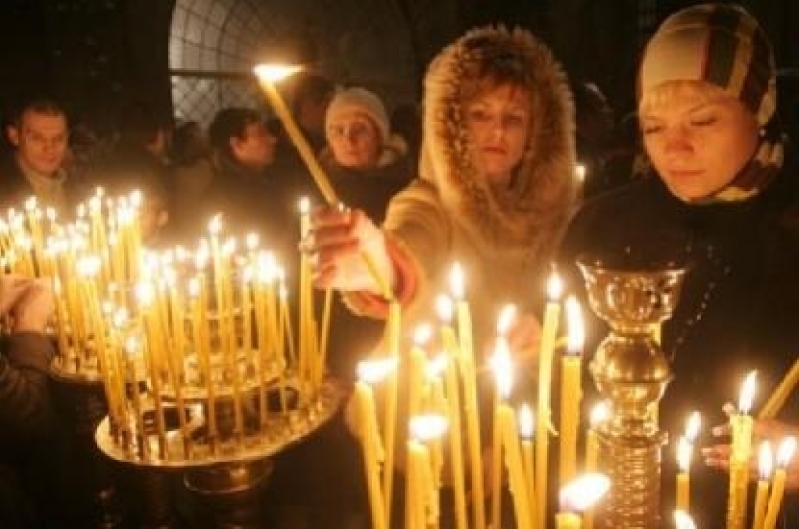
For most of America, Christmas was over nearly two weeks ago. For the 300 million Orthodox Christians around the globe, however, January 7th is Christmas day.
To understand the reason for this unique dating of Christmas, we have to look at a little bit of Church history and go back in time to the year 1054 A.D, a full 500 years prior to the Protestant Reformation. At this time and for nearly one thousand years prior, five Bishops governed the Christian Church throughout the entire known world.
A Tale of 5 Bishops
These five governing Apostolic "Sees" were Jerusalem, Antioch, Alexandria, Constantinople, and Rome. The Great Schism of 1054, saw the Apostolic Sees of Jerusalem, Antioch, Alexandria and Constantinople strongly disagree with the See of Rome over several issues, including the Pope's claim to be the head of all the churches. The disagreement was so vigorous that a split occurred, one which exists to the present day. The See of Rome we know as the Roman Catholic Church, while the other four Sees together form the Orthodox Church, or as it is sometimes known, the Eastern Orthodox Church. The Orthodox Church became the dominant Christian Church in most Eastern European countries as well as Greece and Russia.
An Innaccurate Calendar?
In 1054, at the time of the Great Schism, all Churches everywhere used the "Julian" calendar which had been created under the reign of Julius Caesar. However, in 1582 the Roman Catholic Pope Gregory proposed a new calendar for his church.
Julius Caesar introduced his calendar in 45 BC and it was the official calendar in the known world for about fifteen hundred years, but then around 1560 an Italian astronomer, named Luigi Ghiraldi, contended that the Julian calendar was not quite accurate. He argued that the Julian calendar was in error by 11 minutes and 14 seconds, which when tallied up, amounts to one day for every 128 years, for a total of 13 days. In 1582, in order to correct the problem, the Roman Catholic Pope Gregory XIII abolished the "Old Julian" calendar and substituted the Ghiraldi system.
The "new" system proposed by Ghiraldi is commonly known as the "Gregorian Calendar". Because the new "Gregorian" calendar differed from the older Julian calendar by 13 days, Christmas would now be celebrated 13 days earlier, on the "new" December 25th.
Since the Orthodox Church had no connection to the Roman Catholic Church, it simply stayed on the "Old Julian" calendar.
The Gregorian calendar went on to be adopted by not only the Roman Catholic Church, but also by Western governments and even by the Protestant Reformers. Today, in Orthodox Christian countries, like Russia, Georgia, Bulgaria, Romania, Ethiopia, Ukraine, Serbia, and Moldova, the governments and financial sectors are ordered using the Gregorian calendar, but the Orthodox Church continues using the older Julian calendar for all Church related affairs.
An interesting historical note for Americans is that since the "new Gregorian calendar" was not fully adopted in the secular world until 1923, even the early American Colonies still operated on the "old" Julian calendar.
Dec. 25 is Jan. 7?
"It seems confusing at first, but Christmas is actually celebrated on both calendars on the 25th of December", said Father Matthew Floyd, priest at Saint Nino Orthodox Church in Stillwater. "When we say that Orthodox Christians celebrate Christmas on January 7, what we really mean is that December 25 on the Julian calendar falls on January 7 on the Gregorian calendar. So strictly speaking, Christmas is still kept on December 25 - which just happens to fall 13 days later on the Julian calendar."
Father Matthew went on to say that "the unique dating of Christmas does have its advantages. Many Americans feel concerned about the over commercialization of Christmas. Orthodox Christians in America do get to avoid this to some degree. Most of us celebrate "Western Christmas" with our non-Orthodox extended families on December 25th. We open presents and watch football and the usual things, and then we get to look forward to a more overtly spiritual and quiet time, with an Orthodox Church service on January 7th."
Fasting Before Christmas?
The Orthodox observance of Christmas (technically known as The Feast of the Nativity in the Flesh of our Lord and God and Savior Jesus Christ) contrasts considerably from Western customs. Although Orthodox Christians also have a 40 day Advent season, it is meant to be a time of fasting, prayer and performing deeds of charity. The celebration and feasting begins after the Church service on January 7.
"Whether you celebrate December 25 or 13 days later, it is still remarkable that more than 2000 years after the birth of Jesus the world still pauses to acknowledge His Incarnation on this day."







